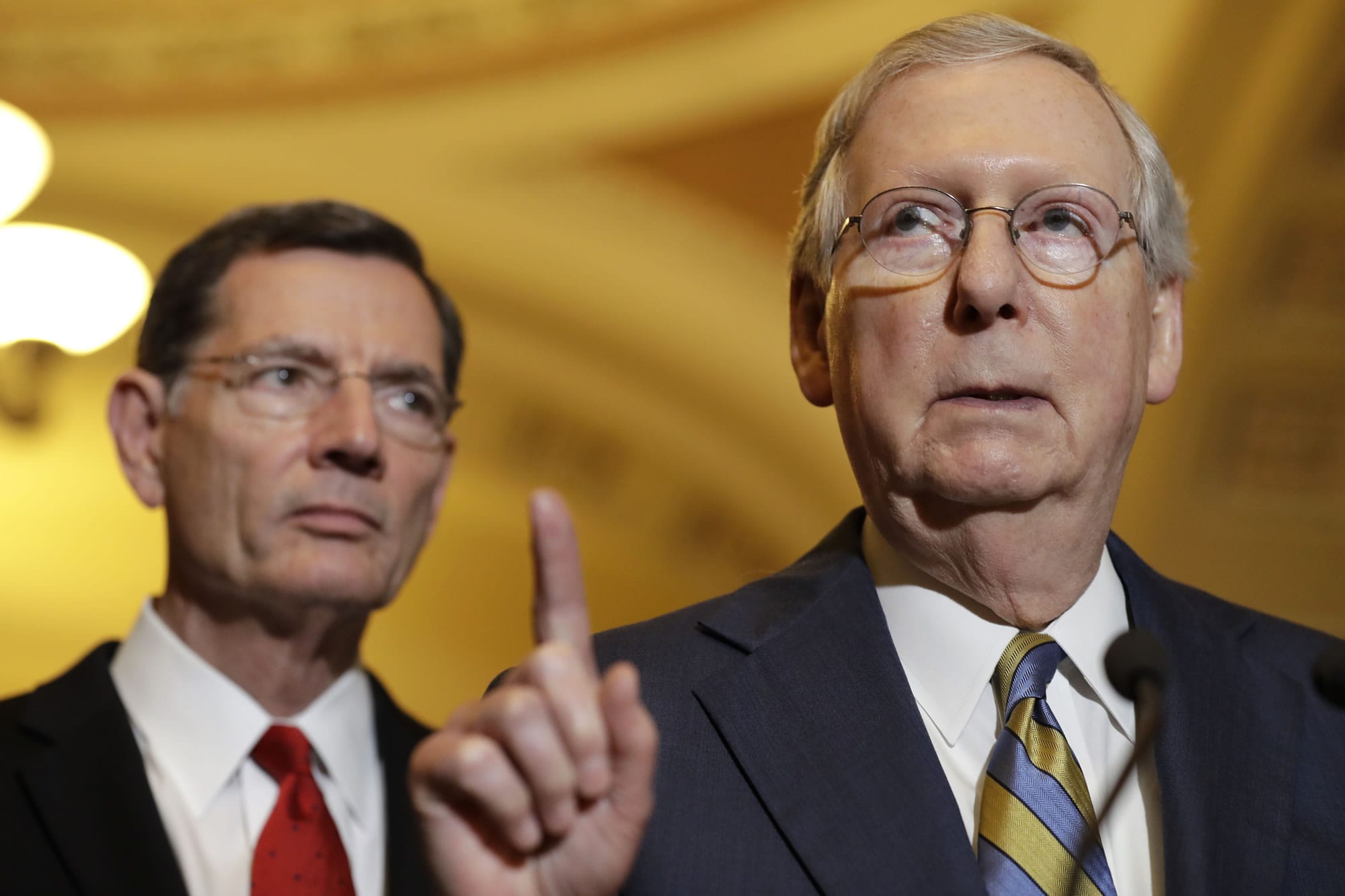WASHINGTON — The health care bill Republicans recently pushed through the House would leave 23 million more Americans without insurance and confront others who have costly medical conditions with coverage that could prove unaffordable, Congress’ official budget analysts said Wednesday.
Premiums on average would fall compared with President Barack Obama’s health care overhaul — a chief goal of many Republicans — but that would be partly because policies would typically provide fewer benefits, said the report by the nonpartisan Congressional Budget Office.
In some regions, people with pre-existing medical conditions and others who were seriously ill “would ultimately be unable to purchase” robust coverage at premiums comparable to today’s prices, “if they could purchase at all,” the report said. That was a knock on 11th-hour changes Republicans made in the bill to gain conservatives’ votes by letting states get waivers to boost premiums on the ill and reduce coverage requirements.
The report said older people with lower income would disproportionately lose coverage. Over half of those becoming uninsured, 14 million people, would come from the bill’s $834 billion in cuts to Medicaid, which provides health coverage to poor and disabled people, over 10 years.
Democrats cited the analysis as further evidence that the GOP effort to repeal Obama’s 2010 law, a staple of Donald Trump’s presidential campaign and those of numerous Republican congressional candidates for years, would be destructive. It comes three weeks after the House narrowly passed the legislation with only Republican votes, and serves as a starting point for Senate Republicans trying to craft their own version, which they say will be different.
“The report makes clear that Trumpcare would be a cancer on the American health care system,” said Senate Minority Leader Chuck Schumer, D-N.Y., using the nickname Democrats have tried pinning on the bill. Schumer said the legislation would end up “causing costs to skyrocket, making coverage unaffordable for those with pre-existing conditions and many seniors, and kicking millions off of their health insurance.”
Trump’s Health and Human Services secretary, Tom Price, assailed the CBO for being inaccurate, with the White House issuing a similar critique.
“The CBO was wrong when they analyzed Obamacare’s effect on cost and coverage,” Price said of the agency’s report on Obama’s law, “and they are wrong again.”
Many congressional Republicans took a sharply different tack, emphasizing some of the report’s more positive findings.
“This CBO report again confirms that the American Health Care Act achieves our mission: lowering premiums and lowering the deficit. It is another positive step toward keeping our promise to repeal and replace Obamacare,” said House Speaker Paul Ryan, R-Wis.
The analysis said the House bill, the American Health Care Act, would reduce federal deficits by $119 billion over the next decade. The previous version of the bill reduced shortfalls by $150 billion.
Trump and Republicans celebrated the House’s narrow May 4 passage of the bill in a Rose Garden ceremony after several embarrassing setbacks, even as GOP senators signaled it had little chance of becoming law without significant changes.
In a late compromise, House GOP conservatives and moderates struck a deal that would let states get federal waivers to permit insurers to charge higher premiums to some people in poor health, and to ignore the standard set of benefits required by Obama’s statute.
CBO said states adopting those waivers could destabilize coverage for people with medical problems. The agency estimated that about one-sixth of the population — more than 50 million people — live in states that would make substantial changes under the waivers.



